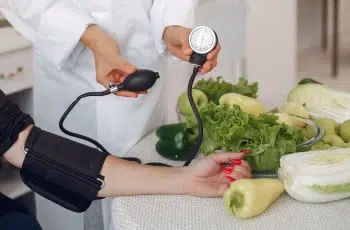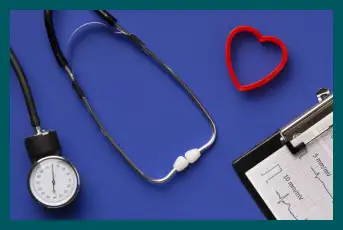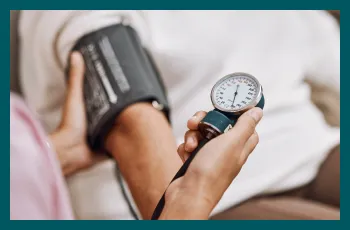Is My Blood Pressure Too High?
Written by the editorial staff writer at Hola. Medically Reviewed by Dr. Vishnu Gopalan, Chief Medical Officer - Hola Health and Dr. Ammar AL-ANI, MBChB, CCBST, AMC. Blog updated on 12 November, 2025. Originally published on 21 November, 2023.
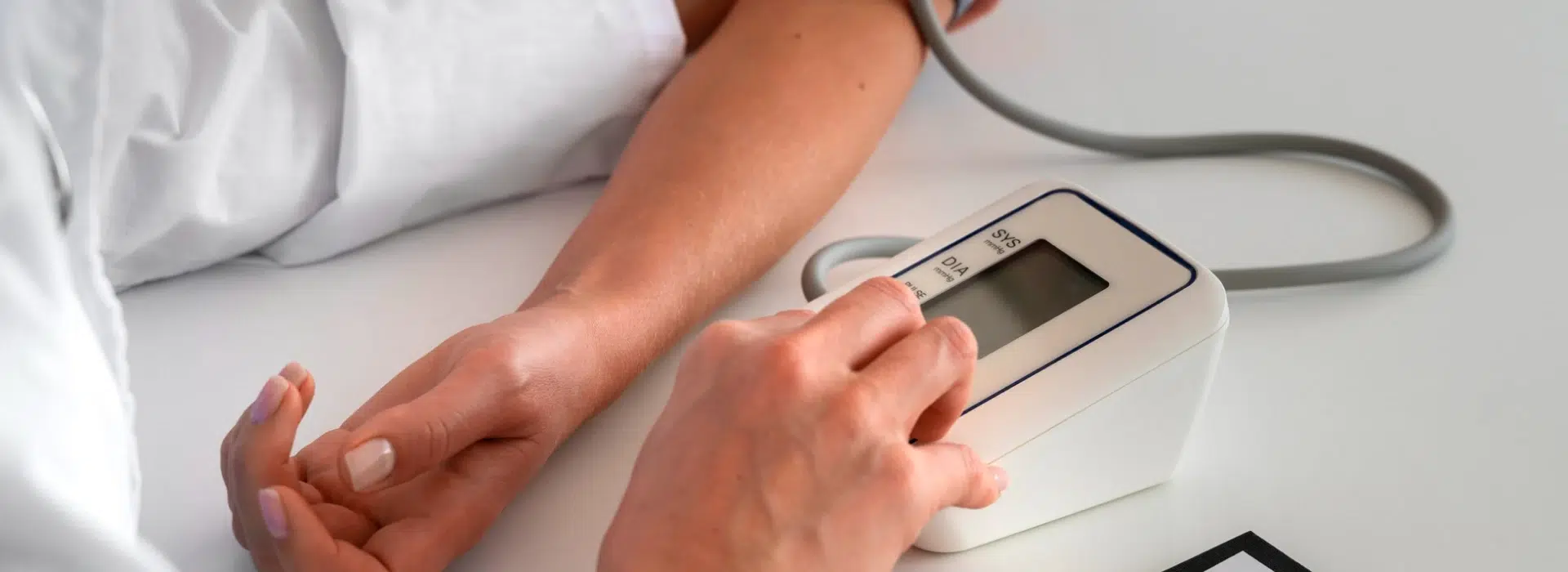
Contents

Overview
After checking your blood pressure, you might find the numbers to be elevated, but what do they represent? High blood pressure, or hypertension, impacts approximately one in three adults in Australia1 and typically shows no symptoms. For this reason, it’s often referred to as the “silent killer.” Identifying and addressing it early on can help safeguard your heart, brain, and kidneys from potential long-term harm.Understanding high blood pressure (Hypertension)
Blood pressure gauges the force exerted by blood against the walls of your arteries as your heart pumps. When this pressure remains elevated for extended periods, it places additional stress on your arteries and organs. Over time, it can result in severe health issues like heart disease, stroke, or kidney failure, frequently without any warning signs.Blood pressure levels explained
Your blood pressure reading consists of two figures:- Systolic (the upper number): the pressure during the heart's contraction
- Diastolic (the lower number): the pressure when the heart is at rest between beats
What Is ‘Normal’ Blood Pressure?
Here’s a simple breakdown of blood pressure categories:| Category | Systolic (mmHg) | Diastolic (mmHg) |
| Normal | Less than 120 | Less than 80 |
| Elevated | 120–129 | Less than 84 |
| High-Normal | 130–139 | 85–89 |
| Grade 1 (Mild Hypertension) | 140–159 | 90–99 |
| Grade 2 (Moderate Hypertension) | 160–179 | 100–109 |
| Grade 3 (Severe Hypertension) | ≥180 | ≥110 |
Common causes
Hypertension can gradually occur due to a combination of genetic, lifestyle, and environmental factors. Some prevalent causes include:- A family history of high blood pressure
- Excessive salt consumption or regular intake of processed foods
- Insufficient physical activity
- Being overweight or having obesity
- Smoking or drinking alcohol excessively
- Chronic stress or anxiety
- Pre-existing health issues, like diabetes or kidney disease
Feeling sick and unsure why? Talk to a doctor online, available 24/7
Prepare for blood pressure test
Your everyday behaviours can influence your reading. To obtain the most precise result, follow these quick tips before a blood pressure test:- Empty your bladder, as a full bladder can temporarily affect your reading.
- Avoid caffeine, smoking, and exercise for at least 30 minutes before the procedure.
- Relax quietly for 5 minutes before the measurement to allow your body to settle.
- Keep your feet flat and legs uncrossed while seated.
- Refrain from speaking during the measurement; even a brief chat can elevate pressure.
- Support your arm at heart level on a table or cushion for stability and precision.
- These simple measures can significantly enhance the accuracy of your blood pressure reading.
What to do after a high blood pressure diagnosis
If your doctor confirms that you have high blood pressure, don’t worry, it’s a condition that can be managed. Most individuals begin by making small lifestyle modifications before contemplating medication.- Engage in regular physical activity: Strive for a minimum of 30 minutes of moderate exercise each day, such as walking, swimming, or cycling. Consistent physical activity can lower your blood pressure by 5–7 mmHg.
- Reduce salt intake: Limit your salt intake to under 2,000 mg per day. Avoid processed and canned products.
- Adopt a heart-healthy diet: Concentrate on fruits, vegetables, whole grains, and low-fat dairy items. The DASH and Mediterranean diet has been proven to significantly decrease blood pressure.
- Restrict alcohol consumption: Limit yourself to no more than two drinks per day for men and one for women. Cutting down aids your body in naturally regulating blood pressure.
- Emphasise quality sleep: Adults should aim for 7–9 hours of sleep each night. Poor or irregular sleep habits can elevate your chances of developing hypertension and associated health complications.
- Control stress levels: Long-term stress can lead to recurrent increases in blood pressure. Try meditation, yoga, or deep breathing to reduce stress-related blood pressure spikes.
- Stop smoking: Each cigarette temporarily raises your blood pressure and heart rate. Quitting can improve your overall heart health almost immediately.
- Maintain a healthy weight: Even small weight loss can significantly reduce blood pressure and lower the strain on your heart.
Lifestyle change tips
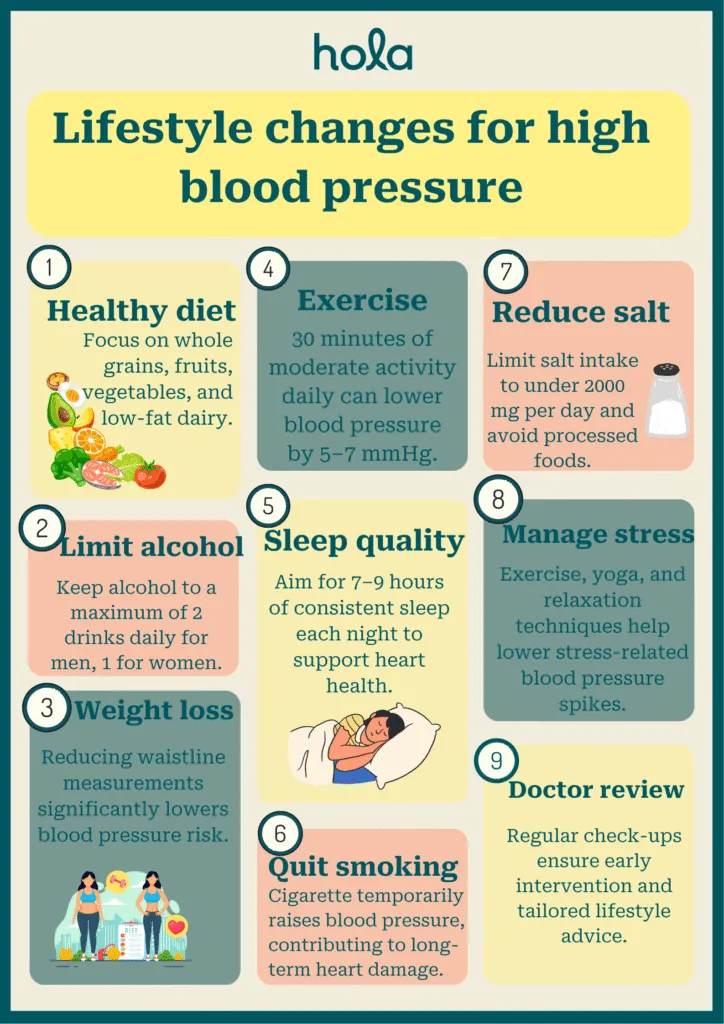
When to see a doctor
You should consult a healthcare provider if:- Your blood pressure consistently measures above 140/90 mmHg.
- You experience symptoms such as headaches, changes in vision, dizziness, or chest discomfort.
- You have a significant family history of cardiovascular disease or stroke.
How Hola Health can help you
Managing your blood pressure doesn’t have to be difficult. Hola Health provides 24/7 online consultations with doctors so you can obtain expert advice, prescriptions, and follow-up care from the comfort of your home. With Hola Health, you can:- Schedule same-day telehealth appointments with Australian doctors.
- Obtain or renew prescriptions for blood pressure medications.
- Receive medical certificates should you require time off.
- Access referrals for blood tests or specialist evaluations.
Conclusion
High blood pressure can be silent, but its effects are serious. The good news is that with early detection, healthy habits, and regular medical guidance, it’s completely manageable. Small daily changes, like reducing salt, staying active, and managing stress, can make a big difference in protecting your heart and overall health.FAQs
-
What are the initial warning signals of high blood pressure?
-
Can stress by itself induce high blood pressure?
-
How frequently should I monitor my blood pressure?
-
Is it possible to manage high blood pressure without medication?
Reference
- Health Direct - Reference link
Providing consult for
- Cough
- Nausea & vomiting
- Fever
- Hayfever
- Fatigue
- Sore throat
- Acne
- Gout
- Eczema
- Rosacea
- Sunburn
- UTI
- Erectile dysfunction
- Contraception
- Morning sickness
- Morning after pill
- Prostate health
- Anxiety
- Depression
- Stress
- Grief & loss
- Premature ejaculation
- Asthma
- Blood pressure
- Diabetes
- Cholesterol
- Migraines & headaches
- Allergies
- Heartburn & reflux
- Sleep disorder
- Gastro
Related Articles
Healthy Blood Pressure By Age: What Is Good Blood Pressure Based On Age?
Disclaimer
This blog is for general informational purposes only and does not indicate that Hola Health provides all treatments or preventive measures mentioned. It is not intended to be a substitute for professional medical advice. Always seek the guidance of your doctor or other qualified health professional with any questions you may have regarding your health or a medical condition. For emergencies please immediately contact 000. Any medical topics discussed are intended to educate, not to imply availability through Hola Health.


